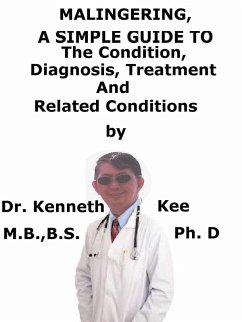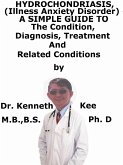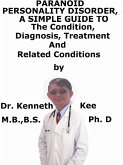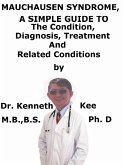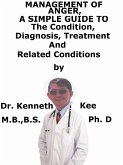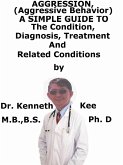Did you as a child ever pretend to be sick to avoid going to school?
There is actually a medical name for this behavior.
It is called malingering.
It indicates producing false medical symptoms or exaggerating existing symptoms in the hope of being rewarded in some way such as medical leave, exemption from duty or medicines.
Malingering is an act, not a psychological disorder.
It entails pretending to have a physical or psychological disorder in order to gain a reward or avoid something:
1. To avoid military service or jury duty.
2. To avoid being convicted of a crime.
3. To avoid going to school
4. To avoid specific work
Before suggesting that someone is malingering, it is important to exclude any possible physical or psychological disorders.
The doctor must always keep in mind that there are certain psychological disorders that might cause someone to unwittingly make up or exaggerate their symptoms.
More specific instances of malingering are:
1. Putting makeup on the face to produce a black eye
2. Adding contaminants to a urine sample to alter its chemistry
3. Placing a thermometer near a lamp or in hot water to raise its temperature
Malingering is the purposeful creation of falsely or grossly exaggerated physical and psychological symptoms with the purpose of receiving a reward.
This reward may be money, an insurance settlement, drugs, release from incarceration, or the avoidance of punishment, work, jury duty, the military, or some other form of service.
A malingerer may try to raise the temperature of a thermometer through heat from a lamplight, or alter a urine sample by placing sand to it.
Some cases of malingering are easy to determine.
If the malingerer is more discrete, a doctor may have considerable difficulty getting evidence for an accurate diagnosis.
Malingering is not a psychiatric disorder.
It is similar to but distinct from factitious disorder in which an individual fakes symptoms without a concrete motive of reward.
Malingering is also different from somatic symptom disorder in which a person feels real psychological distress from imagined or exaggerated symptoms.
Malingering can cause abuse of the medical system, with unneeded tests being done and time taken away from other patients.
Causes:
Malingering is not produced by any physical factors.
Rather, it is the effect of someone's desire to gain a reward or avoid something.
That said, malingering is often followed by real mood and personality disorders, such as antisocial personality disorder or major depressive disorder.
Malingering is fabrication or profound overstatement of illness (physical or mental) to gain external benefits such as:
1. Avoiding work or responsibility,
2. Seeking drugs,
3. Avoiding trial (law),
4. Seeking attention,
5. Avoiding military services,
6. Leave from school,
7. Paid leave from a job, among others
It is not a psychiatric illness according to DSM-5 (Diagnostic and Statistical Manual of Mental Diseases, Fifth edition).
Malingering is linked with an anti-social personality disorder and histrionic personality trait.
To get an external (secondary) gain, the person fakes an illness that can be of physical or psychological nature.
The patient consciously tells lies about his or her disorder to get a benefit, and upon obtaining the benefit, they cease complaining.
There is no medicine or intervention that can cure malingerers.
Upon detailed history, the malingerer may use up their excuses and give up.
Dieser Download kann aus rechtlichen Gründen nur mit Rechnungsadresse in A, B, CY, CZ, D, DK, EW, E, FIN, F, GR, H, IRL, I, LT, L, LR, M, NL, PL, P, R, S, SLO, SK ausgeliefert werden.

